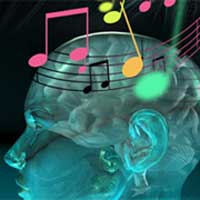Musical activity may improve cognitive aging
Musical activity may improve cognitive aging – A study conducted by Brenda Hanna-Pladdy, PhD, a clinical neuropsychologist in Emory’s Department of Neurology, and cognitive psychologist Alicia MacKay, PhD, found that older individuals who spent a significant amount of time throughout life playing a musical instrument perform better on some cognitive tests than individuals who did not play an instrument.



